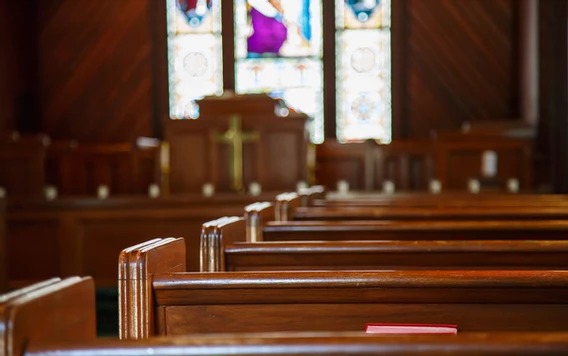Alabama Judge Roy Moore has been accused of sexually abusing multiple teenagers, yet he’s still in a competitive race to become Alabama’s next U.S. Senator. He was apparently barred from an Alabama mall for harassing young girls, yet some faith leaders still stand in sacred spaces in support of a man whom they, assuming they are loving parents, wouldn’t want alone in a room with their daughters or granddaughters. Given the grave concerns about Moore’s alleged history of abusing or assaulting teens and young women, it is sinful that there is a possibility he could win the Alabama special election on Dec. 12.
What’s most disgusting about the Roy Moore debacle is the response of white evangelicals and other Christians who now place industry and party lines before their faith. They’ve propped up those whose morality is in question in ways that they refused to do when they painted President Bill Clinton and presidential hopeful Hilary Clinton as immoral. This type of double standard calls the faith of many into question. Are we really asking church parishioners, and the unbeliever, to maintain or develop confidence in God and God’s church when Christian leaders are unable to distinguish between right and wrong? Do we really believe anyone views those followers as light in dark places?
Ironically, “White evangelicals are now more tolerant of immoral behavior by elected officials than the average American,” according to writer Mckay Collins, of The Atlantic, in an article summarizing a Public Religion Research Institute poll. Do people of faith not see this as problematic? We were called to transform the world, not corrupt it.
Many are watching to see how people of faith respond, and what they see impacts their faith, church attendance and perception of believers. What does it mean for pastors and church leaders to pardon pedophilia, sexual abuse, abuse of authority and racism? It means they, that group of “Christians,” do not follow Christ, are not concerned with the vulnerable and are turning safe spaces into places of manipulation and coercion (and places that accept excuses for misbehavior).
Faith leaders like to throw around words like “repentance,” “remorse” and “reconciliation.” When seeking to excuse Moore’s behavior, they use some variation of, “If he went to God to ask for forgiveness, who am I to bring up his mistakes.” To them I say, pedophilia deserves the harshest rebuke possible. This is bigger than accountability for the purported abuser and justice for the victim. It’s also about the message we’re sending to congregants and nonbelievers alike. The message to little boys and girls who we tell about Jesus will have new questions about Mary this Christmas. While scores of women have come forward sharing their experience with abuse, and the #MeToo movement has gained national recognition, these stories may represent the tip of the iceberg in terms of the people impacted by sexual abuse.
Moore’s apologists can’t even claim that he gave a heartfelt and sincere apology for the wrong he’s alleged to have committed. A sincere apology does several things, including:
1.) Puts political and career ambitions outside. It focuses on human empathy, meaning placing oneself in the position of the person alleging harm. It’s impossible to do this when one is narrowly focused on political or career ambitions. These ambitions place the needs of the ego higher than the needs of the person who has been harmed. When one has been hurt, there is a deep need to be heard; to have one’s pain acknowledged and validated. That cannot happen when political and career ambitions outweigh human empathy.
2.) Explains what it is one is apologizing for. A mere, ‘I apologize’ without an explanation of one’s understanding of how he/she harmed the other person is inadequate. And you can’t experience contrition without understanding what was done and how those actions harmed the other person.
3.) Gives up the need to preserve one’s image. If the sole motivation in issuing an apology is to preserve one’s image, that narrow self-interest will show. When we’re truly remorseful about how our behavior impacts others, we abandon the need to preserve our image.
4.) Doesn’t Qualify. A sincere apology isn’t a ‘nuanced’ apology. It doesn’t seek to shift the blame for misbehavior on others.
For years, people have turned away from the church, and this sort of willingness to pardon sexual abuse if not then, will now serve as a chief reason for rejection. We need true repentance, and not just from Roy Moore. The apology should not be just from “caught offenders,” but their apologists who have once again forced many of us to ask, “Is there a place of refuge?”

